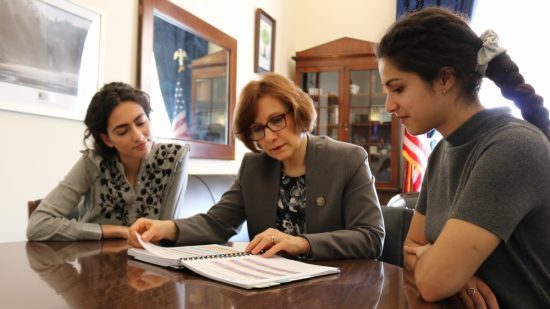Representative Bonamici Celebrations 2018 National Apprenticeship Week

On Thursday, November 15, Women in Apprenticeship Day, Congresswoman Suzanne Bonamici (D-OR), Vice Ranking Member of the House Education and the Workforce Committee, celebrated National Apprenticeship Week and Women in Apprenticeship Day by advocating for more investments in apprenticeships and work-based learning programs.
“Efforts to get our economy back on track have benefited some, but far too many working families are still struggling to make ends meet,” Congresswoman Suzanne Bonamici said on the House floor. “As we recognize National Apprenticeship Week and Women in Apprenticeship Day, we must commit to strengthening apprenticeships and work-based learning programs.
“The PARTNERS Act and funding for the Workforce Innovation Opportunity Act are two pieces of the greater need to invest in apprenticeships and other paid, on-the-job training programs. Investing in these programs will help more people access better paying, stable careers, and provide our nation’s businesses with a workforce that will improve productivity and efficiency.”
Watch the full video of Bonamici’s floor speech.
Bonamici is a champion in Congress for apprenticeships and work-based learning programs. The first bill signing Bonamici attended was for the Workforce Innovation and Opportunity Act (WIOA) when it passed Congress in 2014. Additionally, she has been a leader in efforts to increase funding for the Workforce Innovation and Opportunity Act and Women in Apprenticeship and Nontraditional Occupations grants.
In 2017, she introduced the bipartisan PARTNERS Act to boost apprenticeships and work-based learning programs. The PARTNERS Act would establish a grant program to support the creation and expansion of industry partnerships to help small and medium sized businesses develop work-based learning programs and provide support services for workers.
Oregon Tradeswomen extends our deepest gratitude to Congresswoman Bonamici for her support of apprenticeship, and calling for stronger investments in paid, on-the-job training programs to allow more people to attain living-wage careers with benefits, and providing a pipeline of skilled workers to industries strongly in need of building their workforce.
